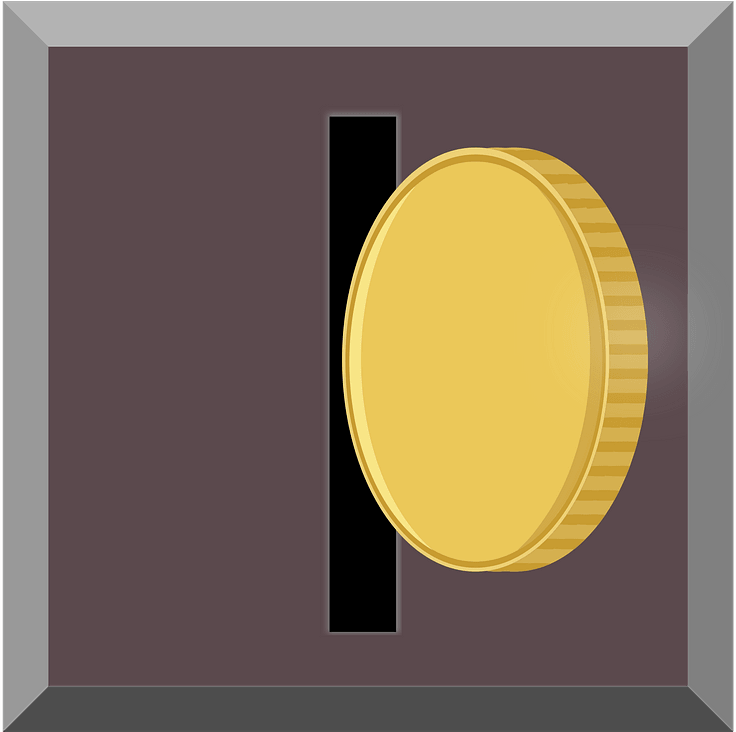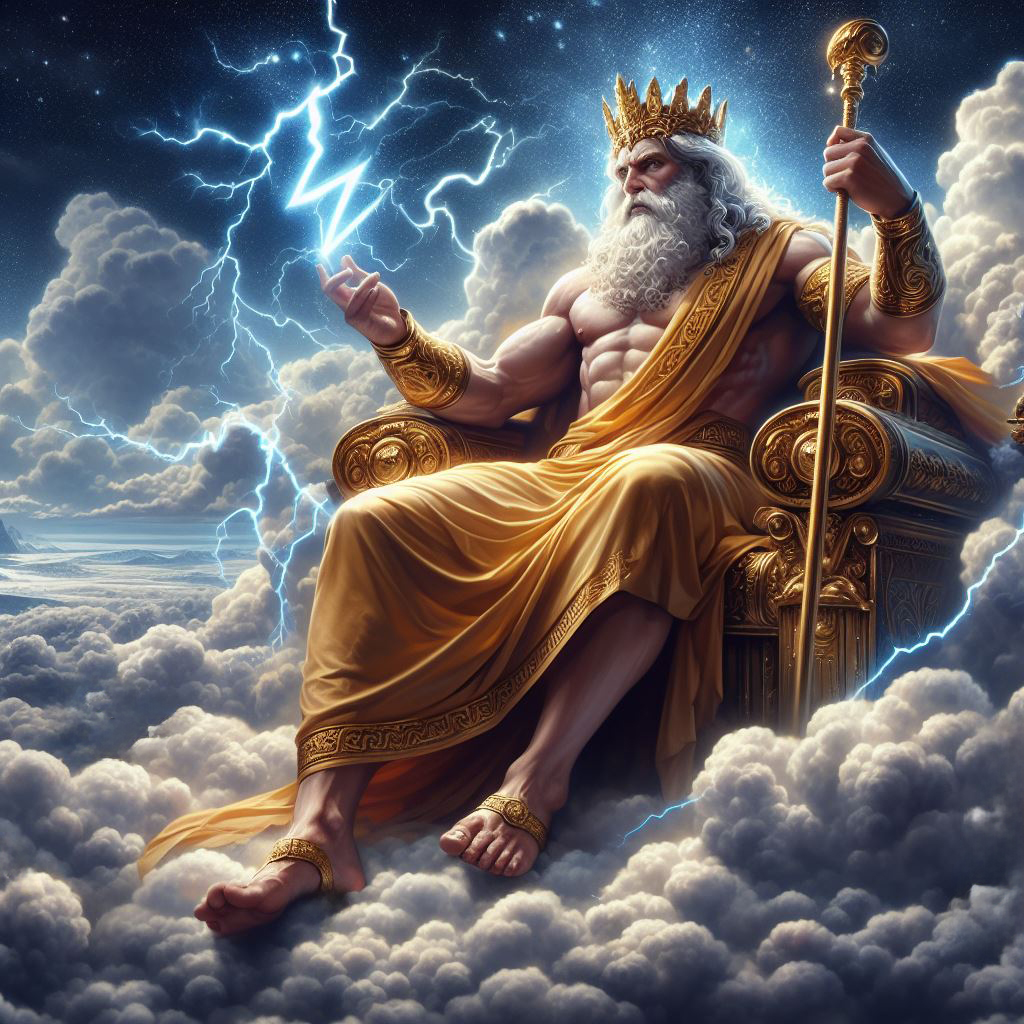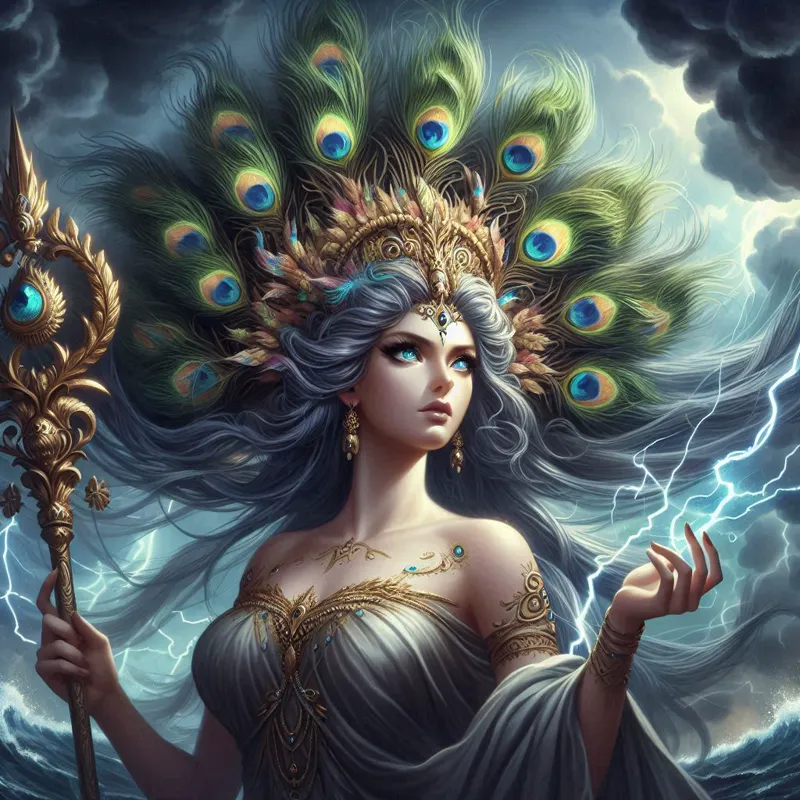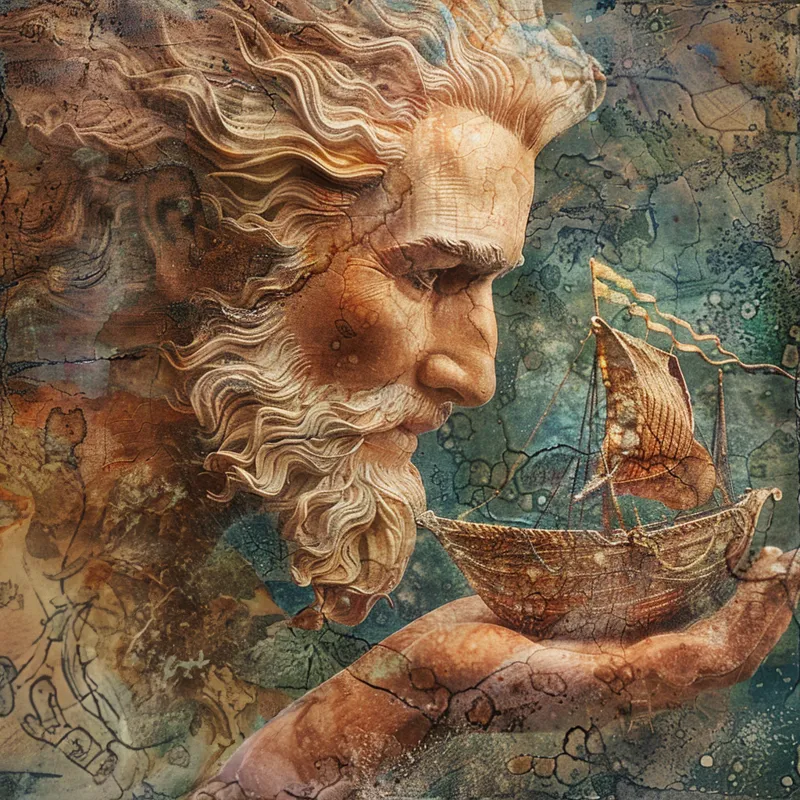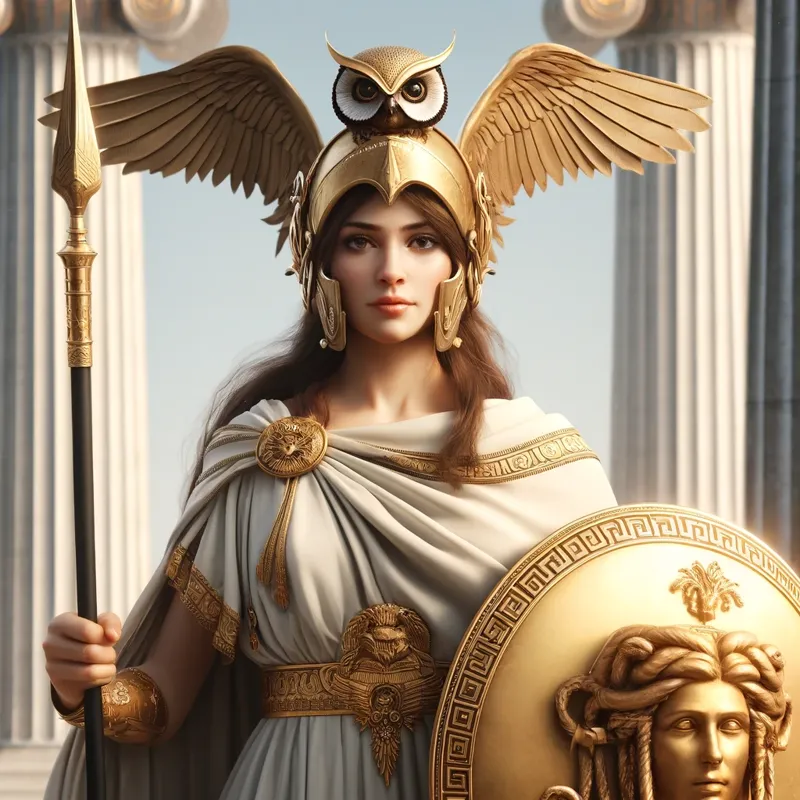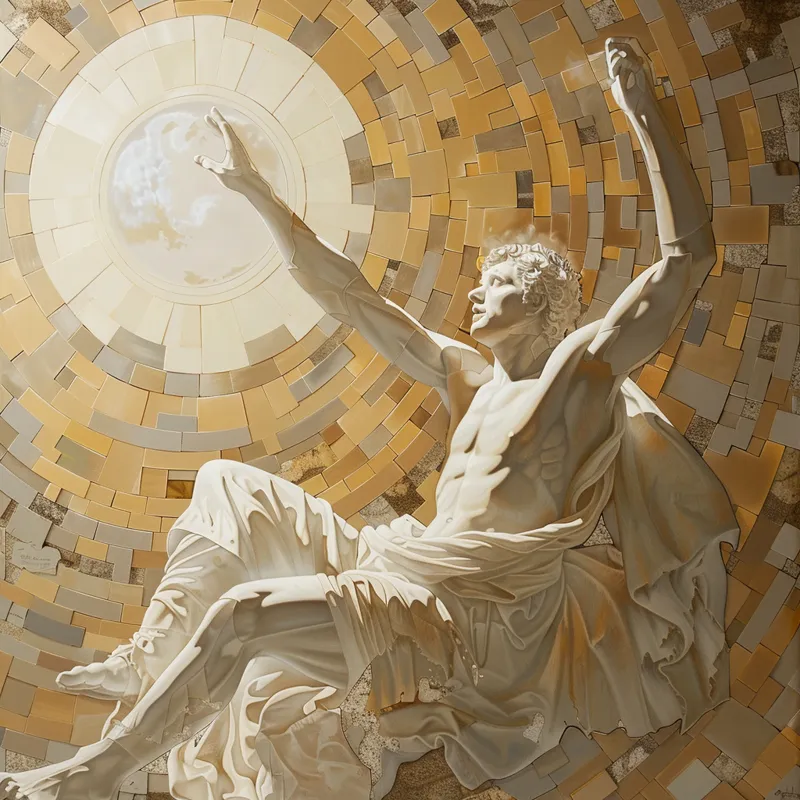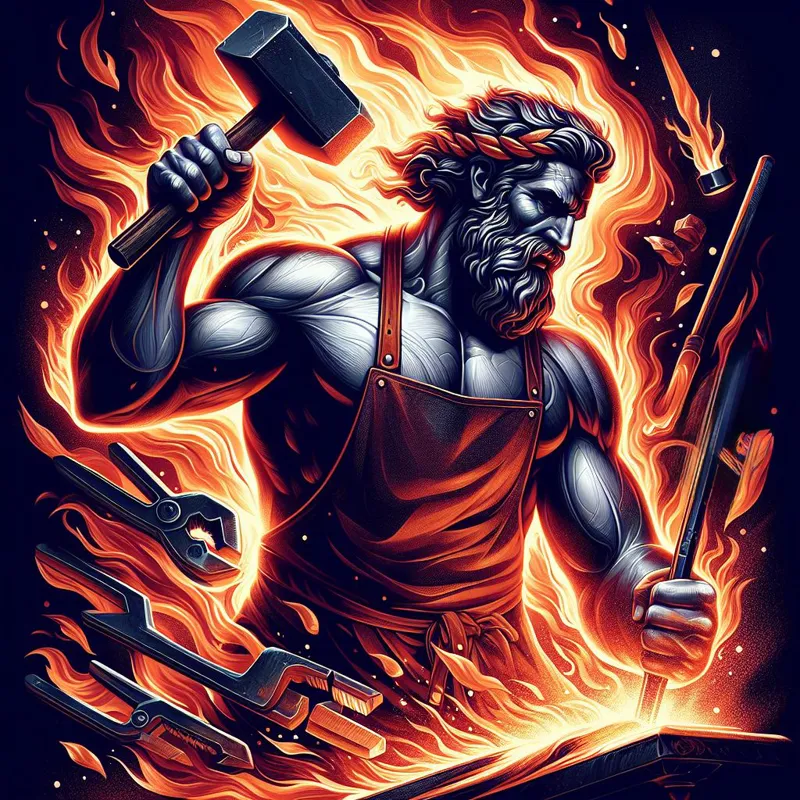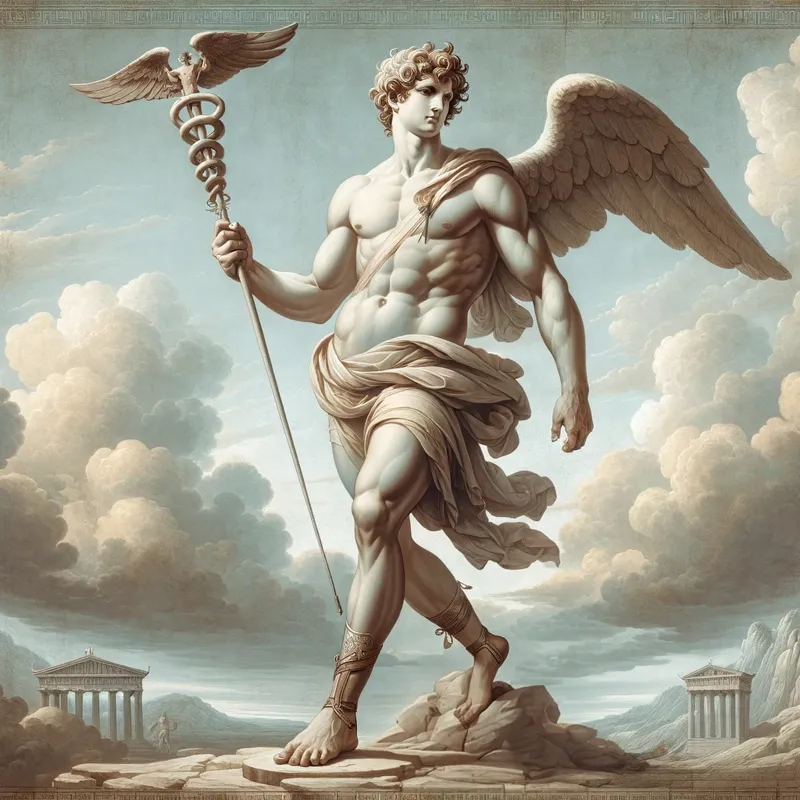
Written in the stars
The Twelfth Labor of Hercules, a tale steeped in Greek mythology, stands as a testament to the hero's strength, courage, and perseverance. Tasked by King Eurystheus, Hercules' final challenge was to capture Cerberus, the fearsome three-headed hound guarding the gates of the Underworld. This labor was not just a test of physical prowess but also of mental fortitude, as it required Hercules to venture into the realm of the dead, a journey few had ever contemplated.
Preparation

Not two but three

The space between
Hercules began his daunting task by seeking the knowledge necessary to enter and exit the Underworld alive. He traveled to Eleusis, where he underwent initiation into the Eleusinian Mysteries, a secretive religious rite. This initiation was crucial, as it provided Hercules with the spiritual guidance and protection needed for his journey into the afterlife. It also symbolized Hercules' readiness to face death, a necessary step for one who would confront Hades himself.

The authors
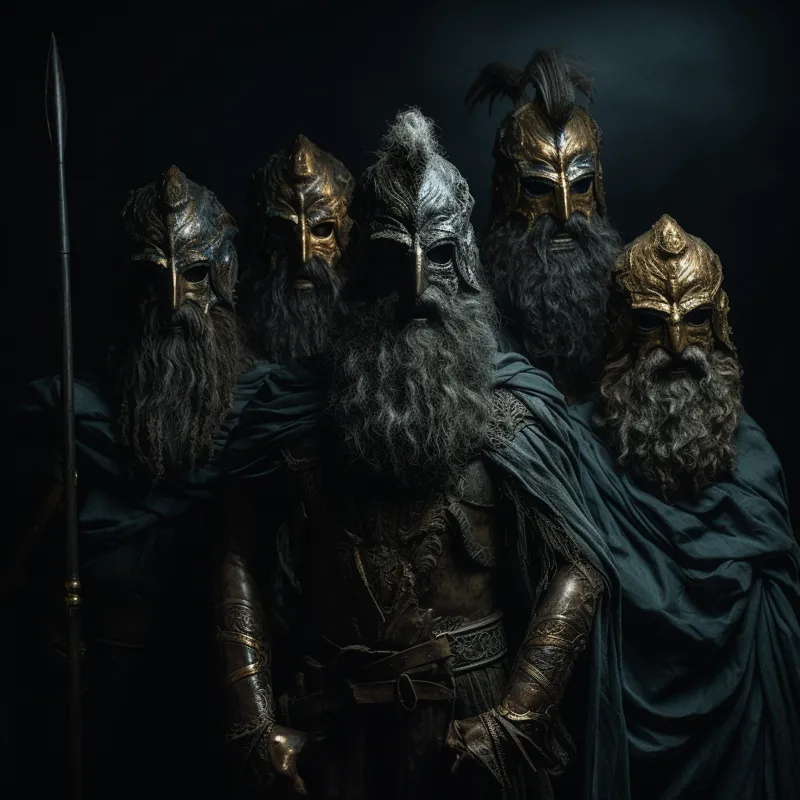
As serious as death
Armed with new knowledge and resolve, Hercules then journeyed towards the entrance of the Underworld. Along the way, he encountered several challenges and omens, each a test of his resolve and a foreshadowing of the trials to come. His determination unwavering, Hercules pressed on, guided by the belief that his quest was not just a labor imposed by Eurystheus, but a personal journey of transcendence.

Paralyzed with terror
Descent into the Underworld
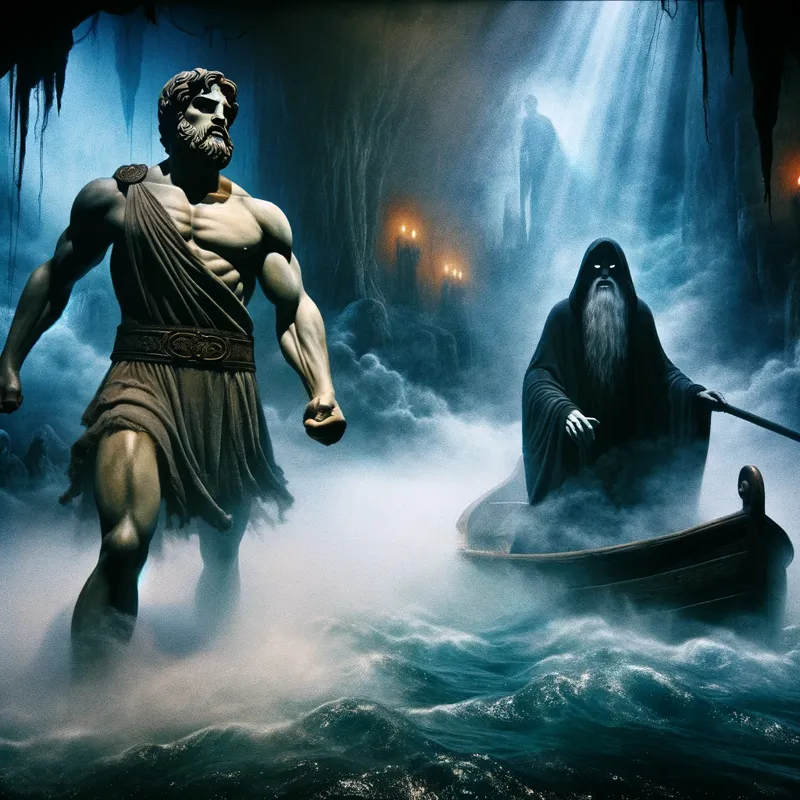
In the valley of the shadow
Upon reaching the gates of the Underworld, Hercules was met with a foreboding landscape, a stark contrast to the world of the living. The river Styx, with its chilling waters, marked the boundary between life and death. Hercules, unphased by the gloom and despair that surrounded him, proceeded with unyielding resolve.
In the Underworld, Hercules encountered the souls of the departed. Among them were figures from his past, reminders of his mortal life and the consequences of his actions. These encounters were emotional for Hercules, confronting him with his own guilt and the transient nature of life. Yet, they also reinforced his purpose, strengthening his resolve to complete his final labor.
Meeting with Hades
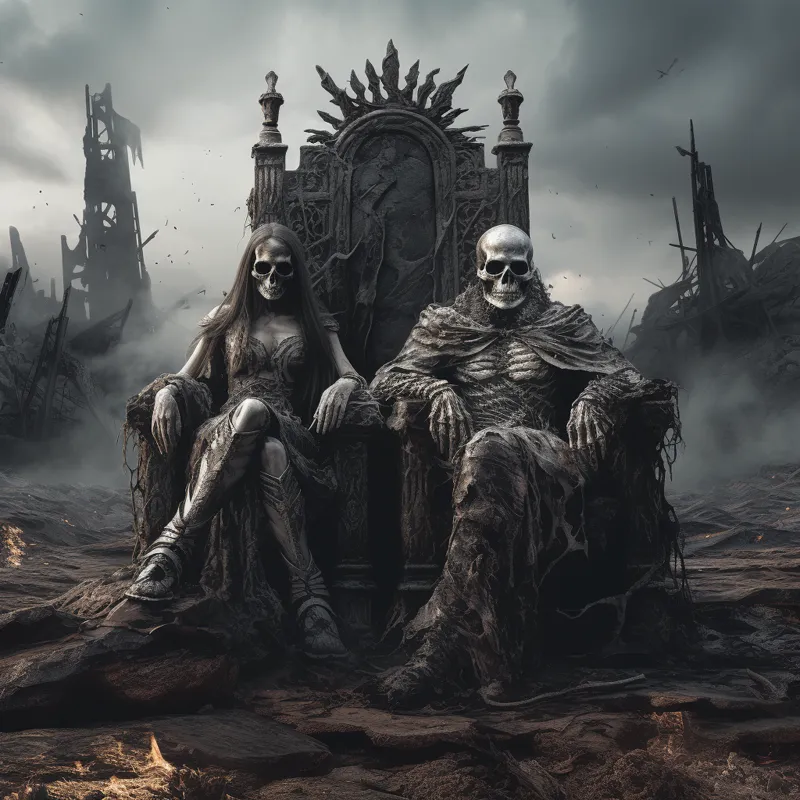
My empire of dirt
Hercules' journey led him to the throne of Hades, the god of the Underworld. Approaching with respect and humility, Hercules requested permission to take Cerberus to the surface. Hades, impressed by Hercules' bravery and acknowledging his divine lineage, agreed under one condition: Hercules must subdue Cerberus without the use of weapons, relying solely on his strength and courage.
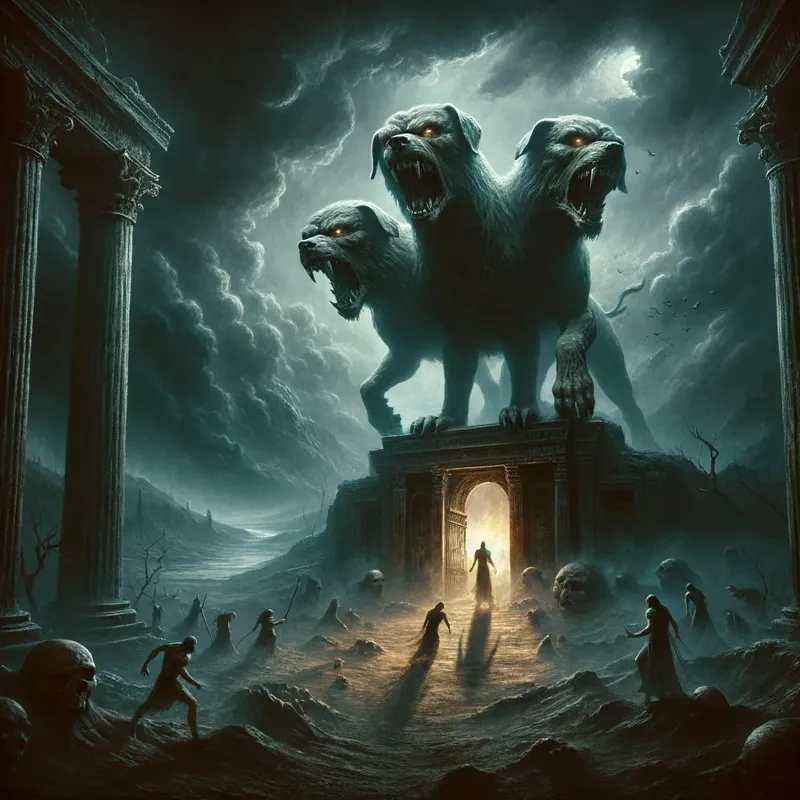
The jailer
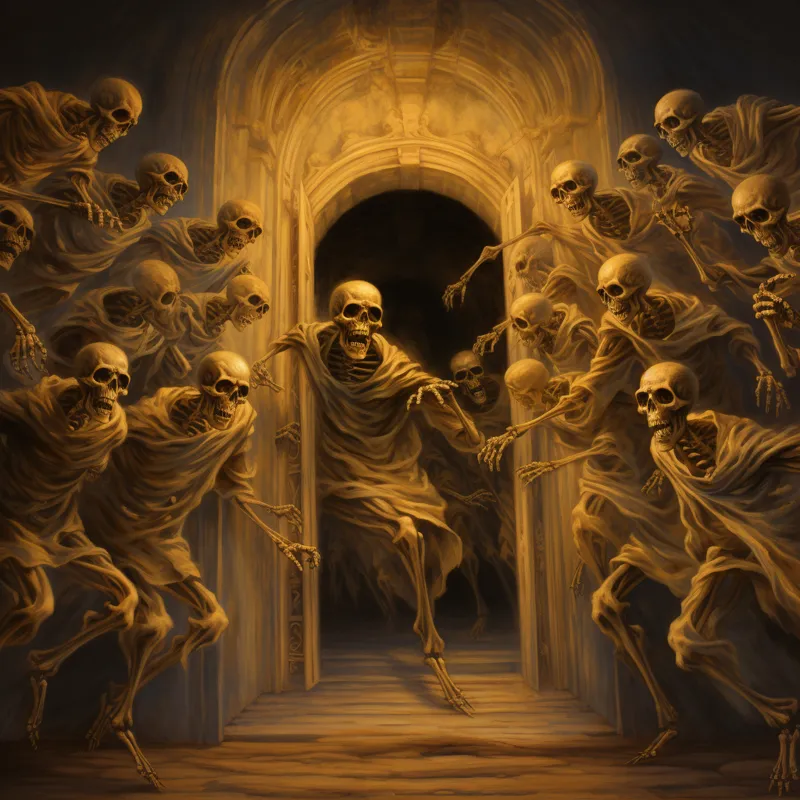
Feared more than hell
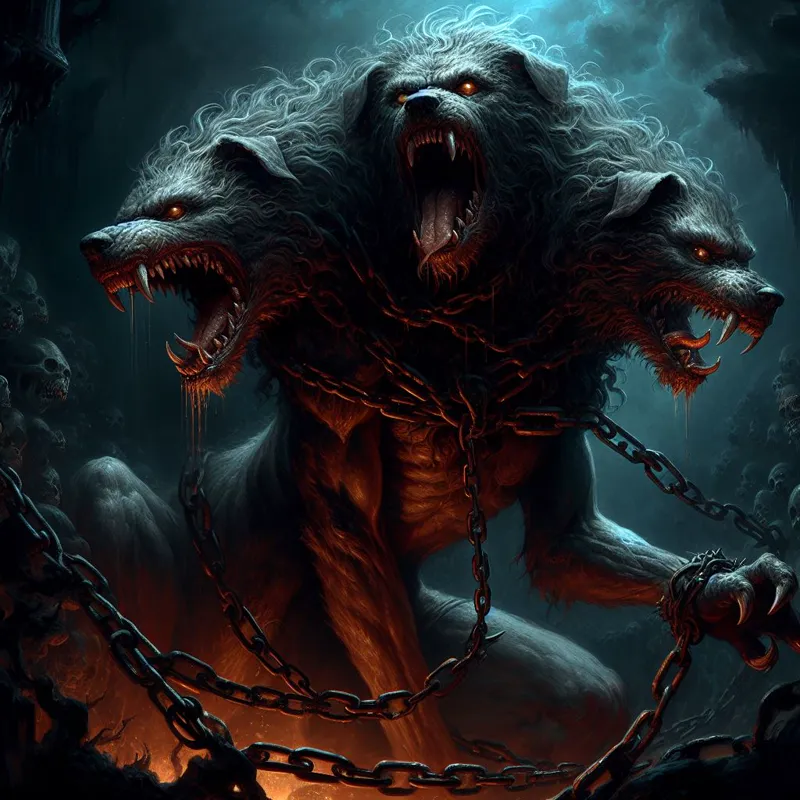
Chained, but by who?

All suffer
This condition posed a significant challenge, as Cerberus was not only a formidable beast with three heads but also possessed a serpent's tail and a mane of venomous snakes. Hercules, however, was undeterred. He viewed this challenge as a final test of his heroic virtues, an opportunity to prove his worthiness not just to Eurystheus, but to the gods and himself.
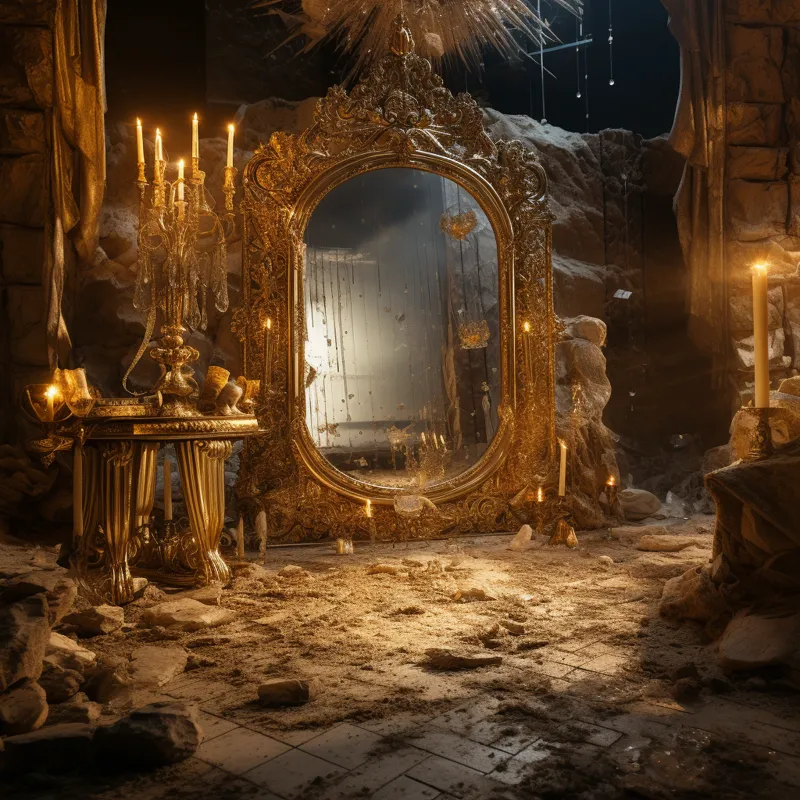
Mirror, mirror...
The Battle with Cerberus
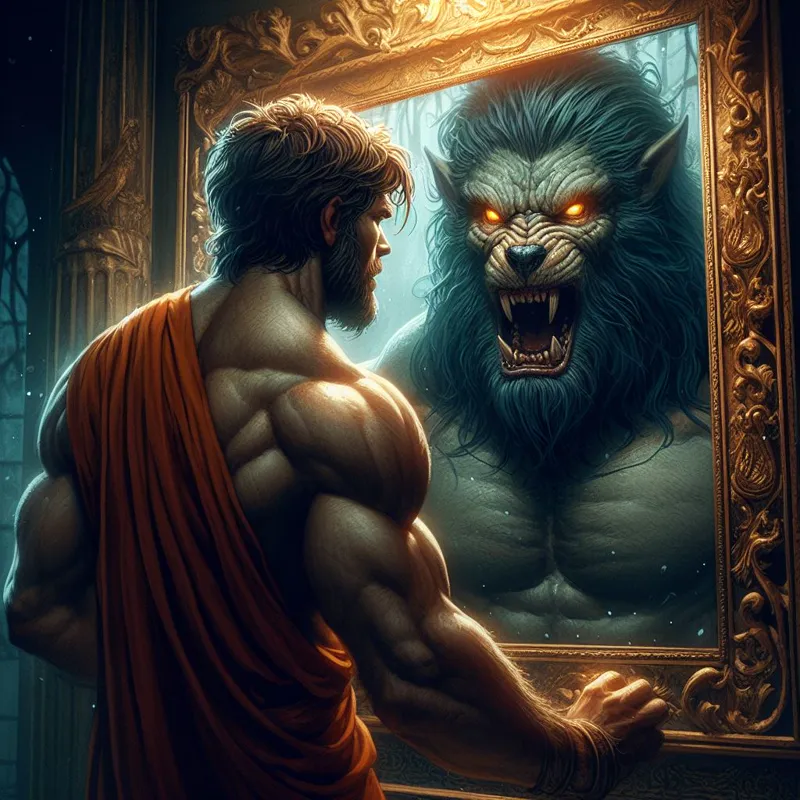
Not my reflection
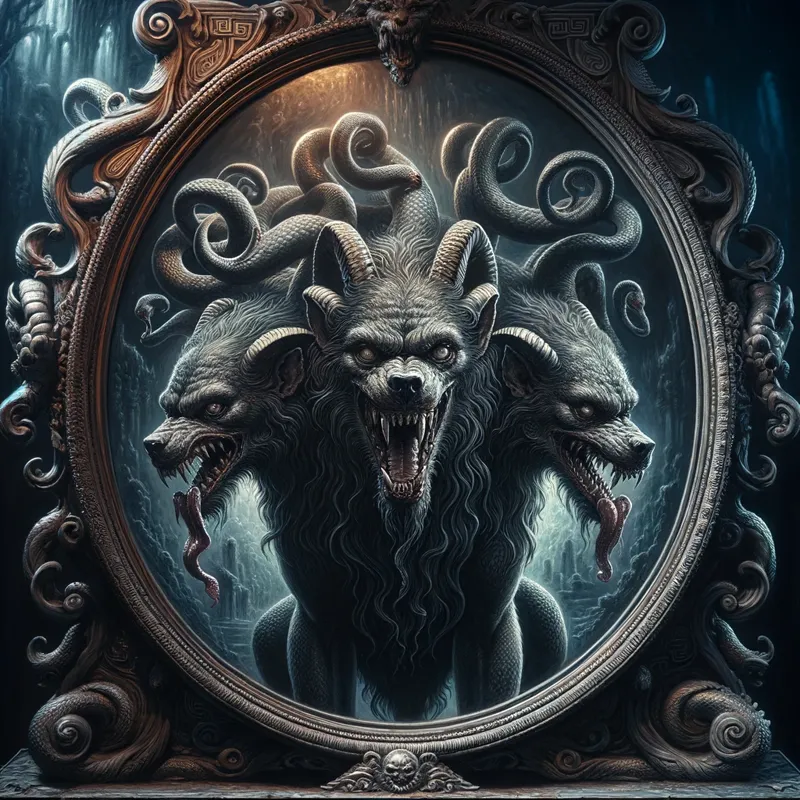
Courage or cowardice

Another world

I choose... both
The confrontation with Cerberus was a fierce and daunting spectacle. Hercules grappled with the monstrous hound, using his immense strength and agility to evade its snapping jaws and thrashing tail. The battle was not just physical but also a test of Hercules' will, as he had to overcome the fear and horror that the beast instilled.
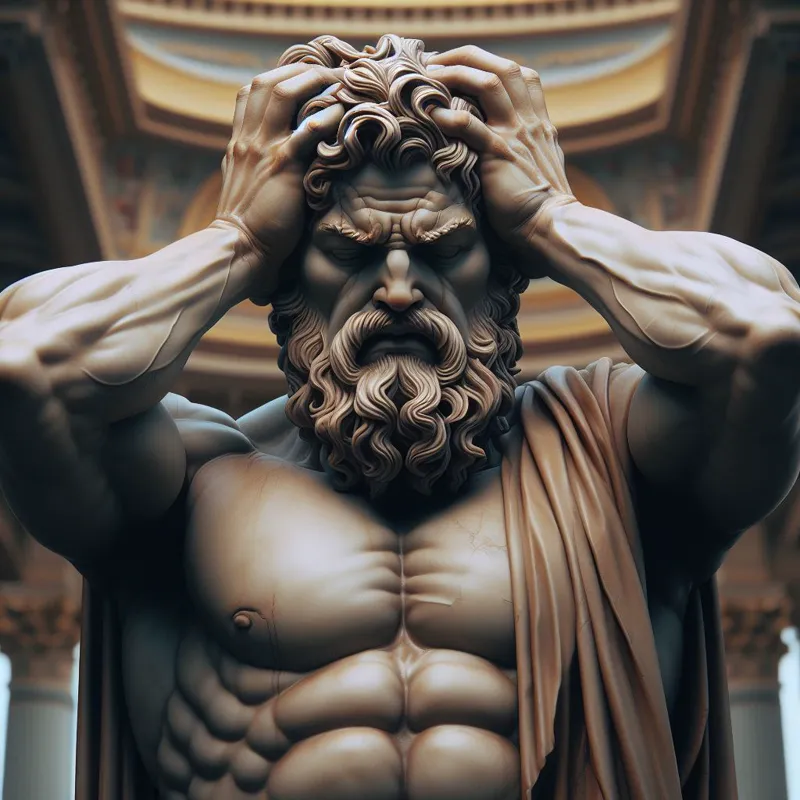
I am a man. I am a monster.
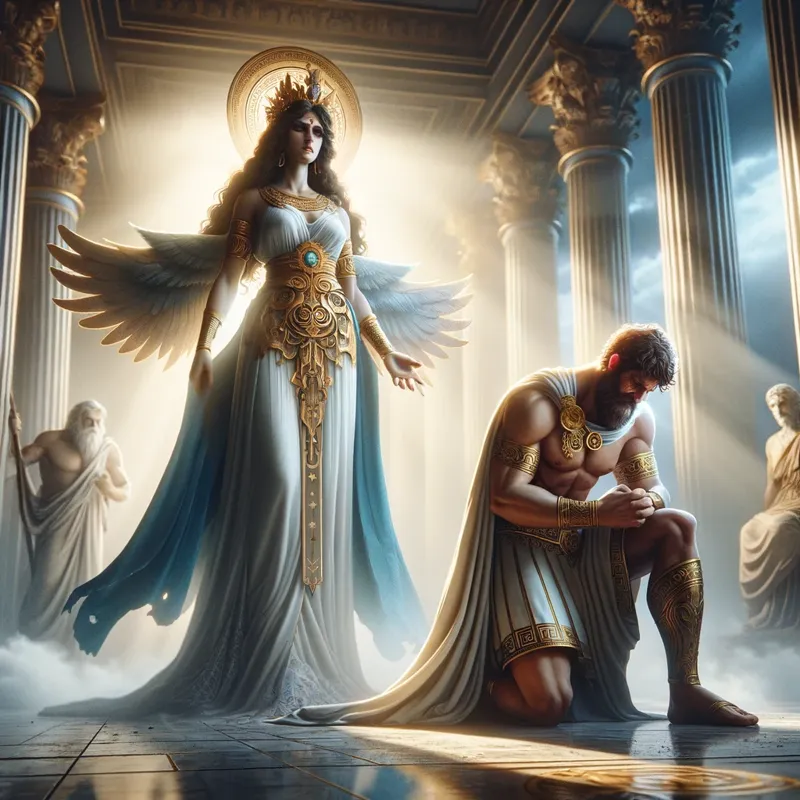
Judgement
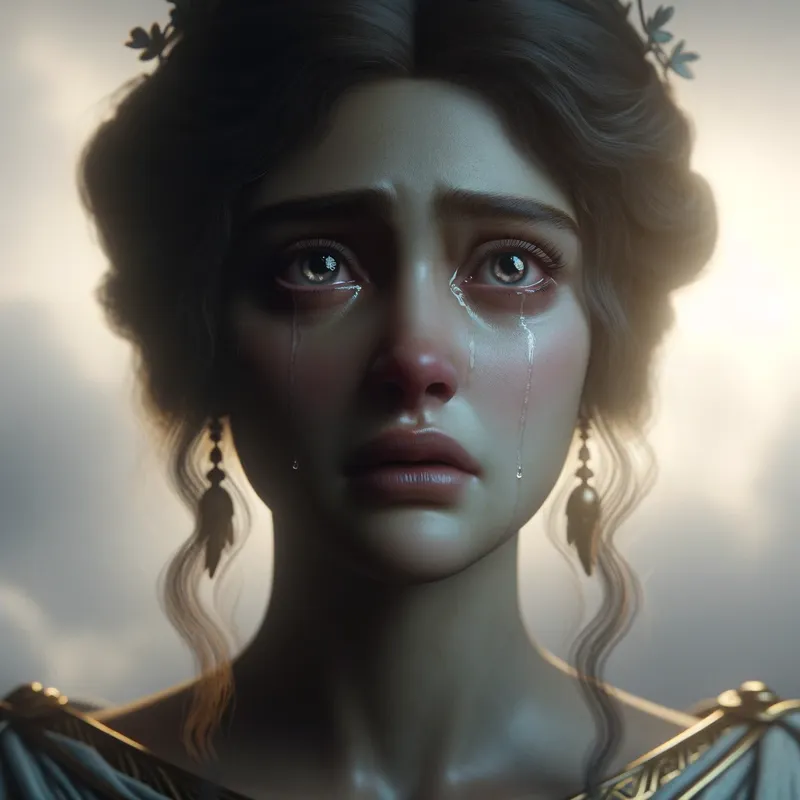
Your courage
Eventually, Hercules managed to subdue Cerberus, using his lion-skin cloak to protect himself from the beast's venomous features. This act of bravery and strength was a culmination of Hercules' trials, showcasing his heroism and his ability to conquer even the most insurmountable challenges. With Cerberus in tow, Hercules prepared to leave the Underworld, his mission nearing completion.
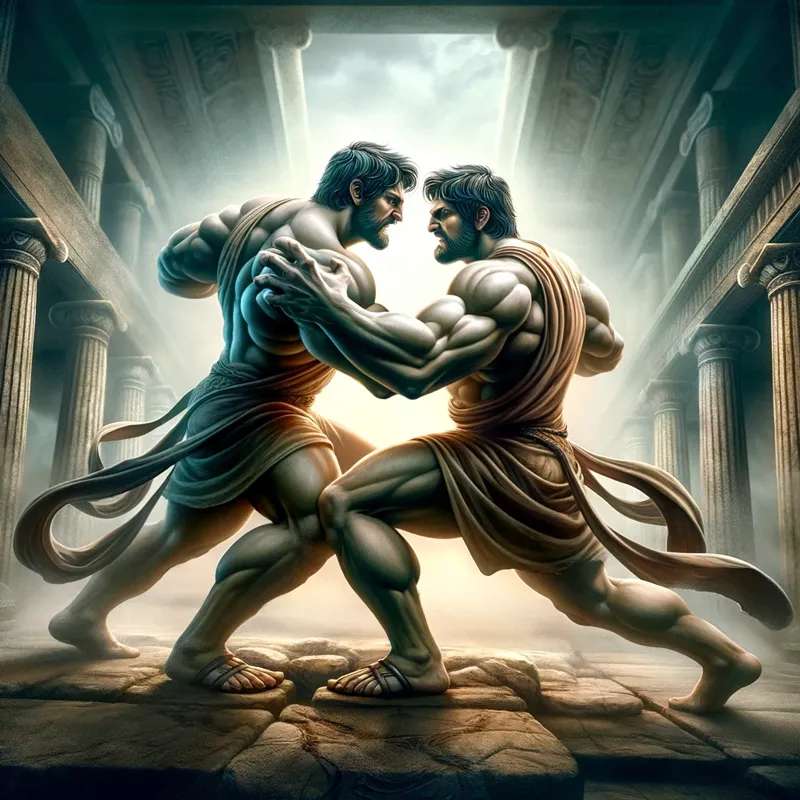
My courage
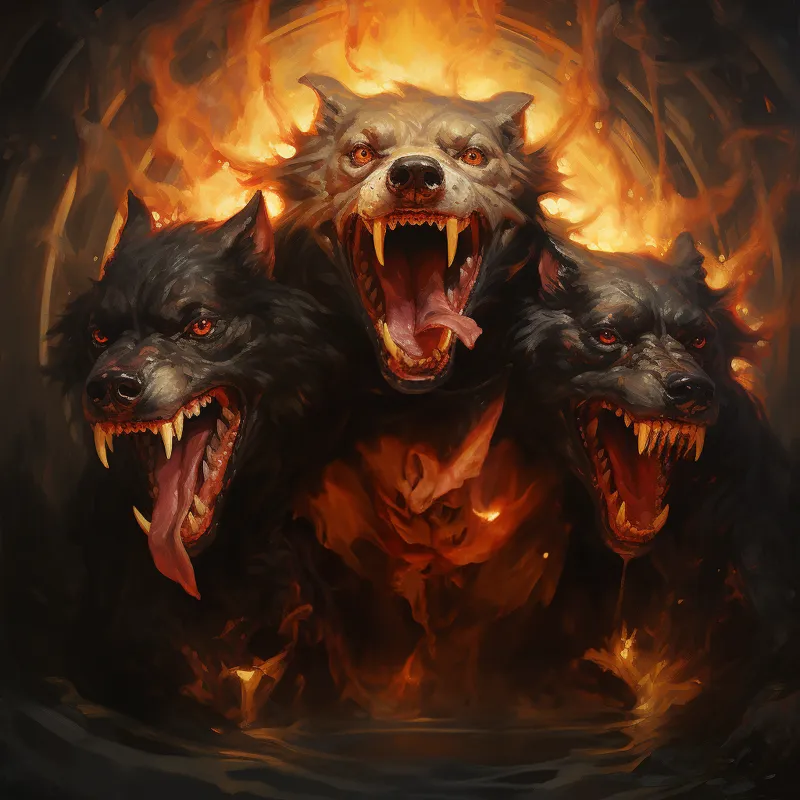
Consumes all

Protects all
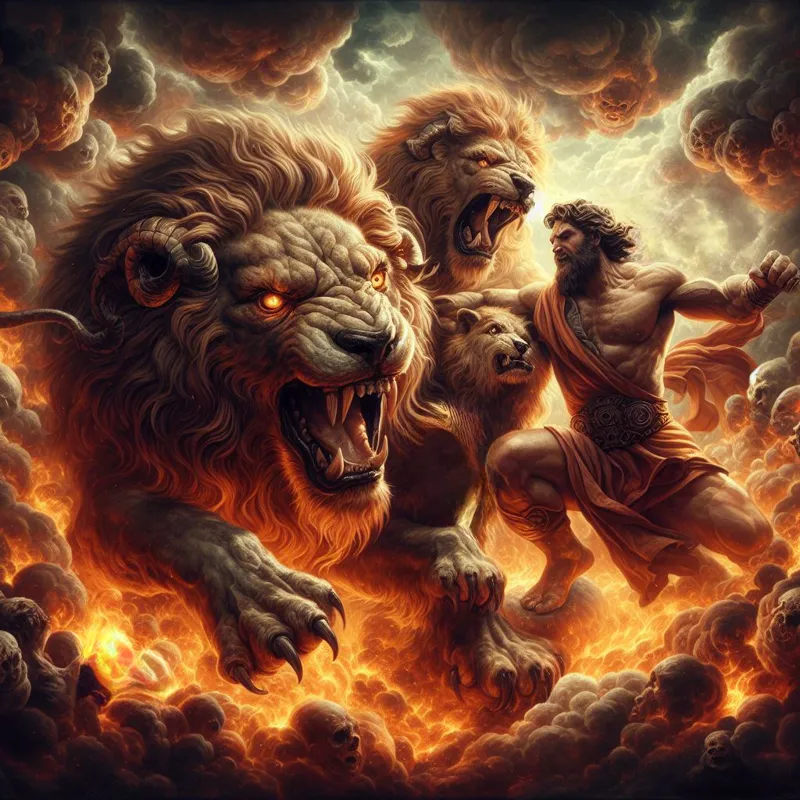
Clash of the titans
Return from the Underworld
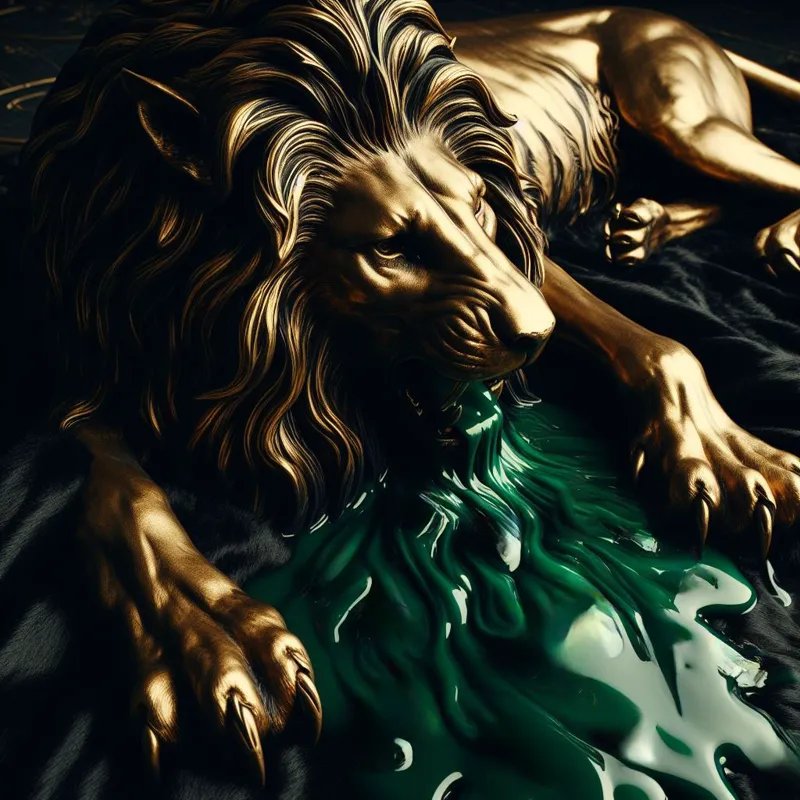
Balance
The journey back to the surface was as treacherous as the descent. Hercules, however, was no longer the same man who had entered the Underworld. He emerged stronger, both physically and spiritually, a hero transformed by his experiences in the realm of the dead.

Tip of the spear
As Hercules ascended from the Underworld with Cerberus, he reflected on his labors, the trials he had endured, and the lessons he had learned. This final labor had been more than a test of strength; it was a journey of self-discovery and redemption, a fitting conclusion to his trials.
Presenting Cerberus to Eurystheus

Save the world
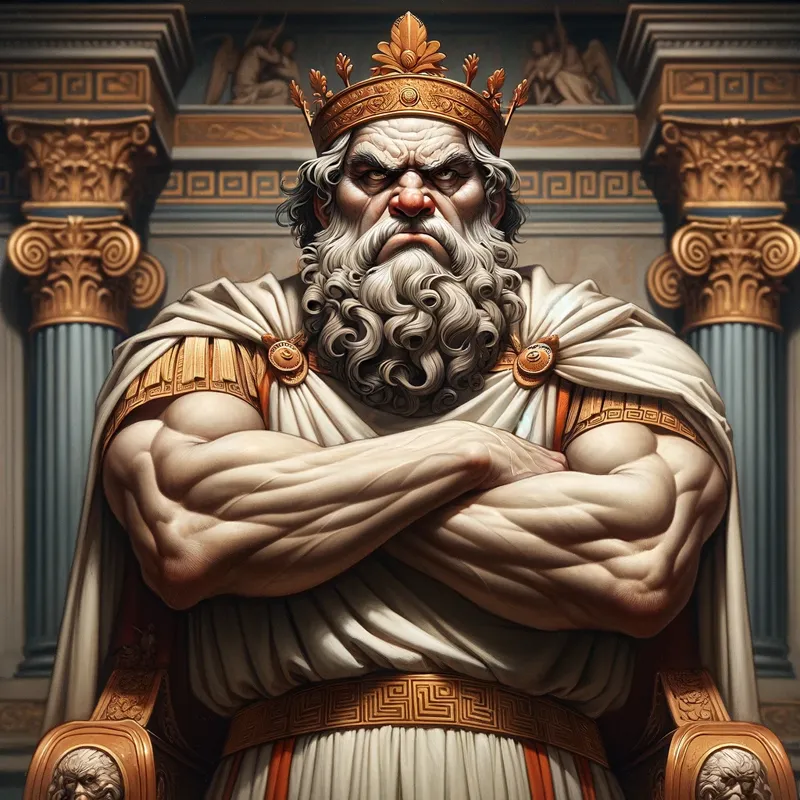
The challenges before you
Upon his return, Hercules presented the subdued Cerberus to King Eurystheus. The sight of the fearsome hound struck terror into Eurystheus, who quickly begged Hercules to return the beast to the Underworld. Hercules' successful capture and return of Cerberus not only marked the completion of his Twelve Labors but also demonstrated his unparalleled heroism and resolve.

Of course I know him. He's me.
This final labor had far-reaching implications, reaffirming Hercules' status as a demigod and a hero of unparalleled virtue. It was a testament to his bravery, his willingness to face the unknown, and his ability to overcome the most fearsome of adversaries.
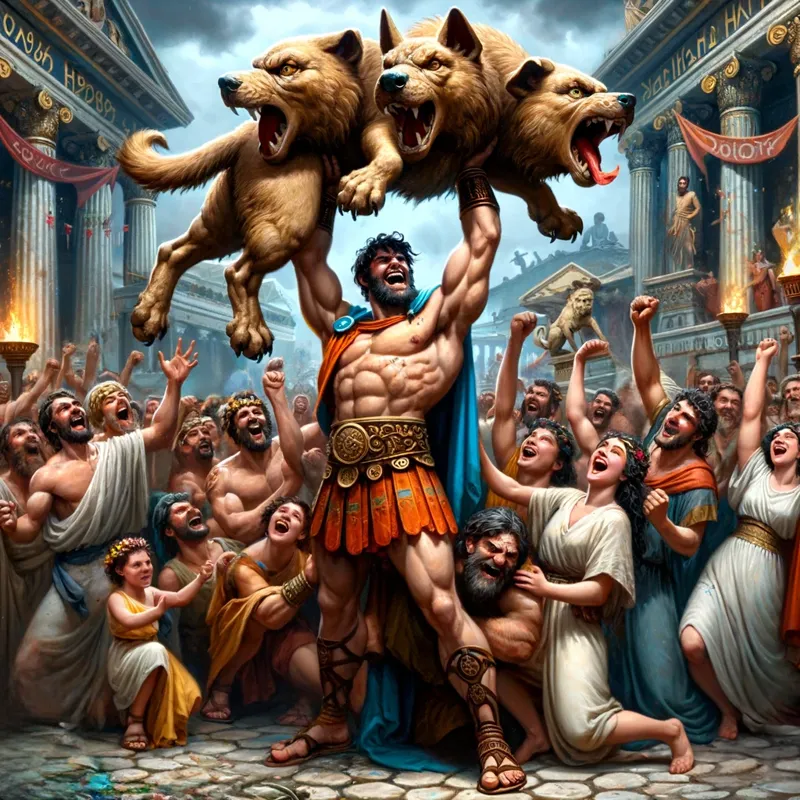
The reward is the adventure
The Twelfth Labor of Hercules remains a powerful narrative in Greek mythology, embodying the timeless themes of courage, redemption, and the triumph of the human spirit. Hercules' journey to capture Cerberus symbolizes the universal quest to confront and conquer our deepest fears. His successful return from the Underworld serves as a reminder of the potential for greatness inherent in all of us, a call to face our own challenges with the same bravery and determination that defined one of mythology's greatest heroes.

